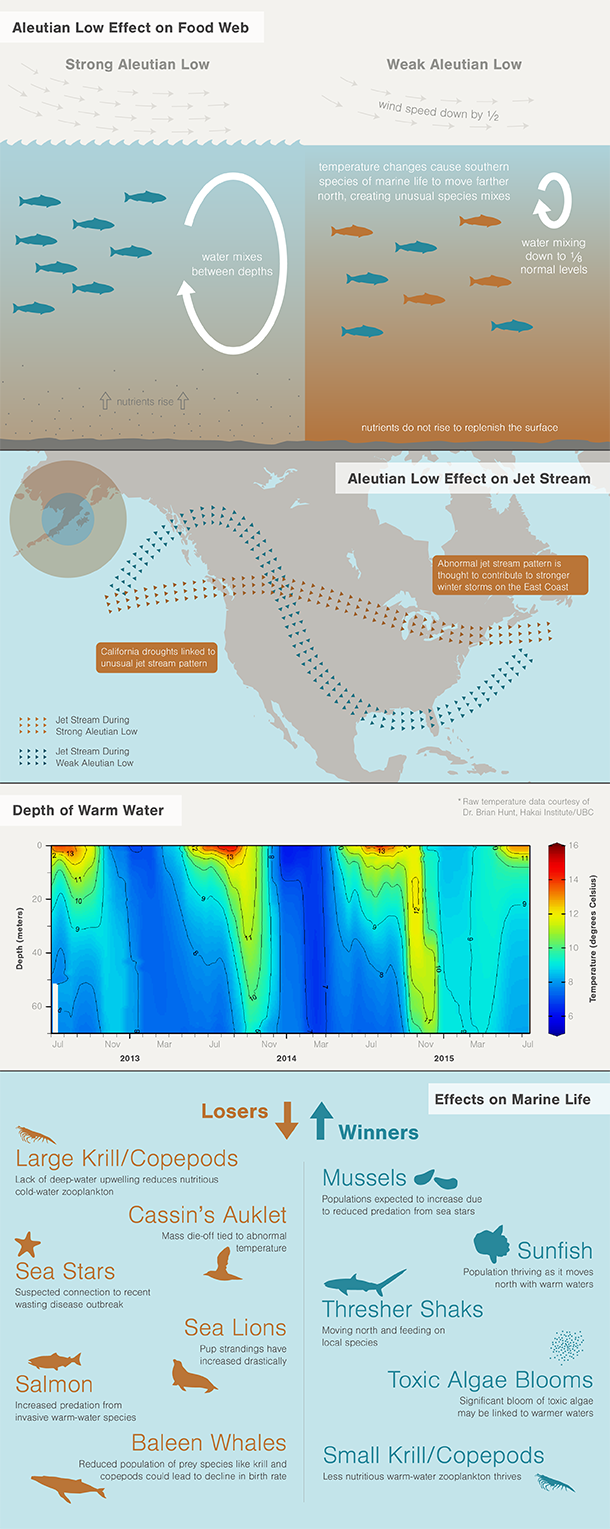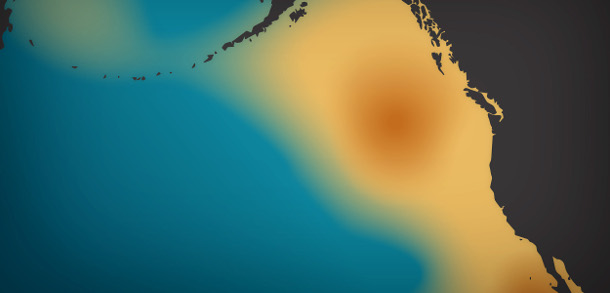[Editor's note: This article is from Hakai Magazine, an online publication about science and society in coastal ecosystems. Read more stories like this at HakaiMagazine.com.]
For the past couple of years, researchers from California to Alaska have witnessed a warm-water phenomenon mess with the coastline's marine food web.
It's like watching a horror B-flick unfold: suddenly, a strange miasma emerges, things get weird, and everyone starts behaving differently. Appropriately, a scientist nicknamed this tepid ocean broth The Blob.
"It's the type of thing you might expect to happen once in a millennium," says Richard Dewey, associate director of science with Ocean Networks Canada. The abnormally warm water is the result of a low-pressure system off Alaska's Aleutian Islands, called the Aleutian Low, which makes the mid-latitude jet stream go haywire. There have been drastic effects on both the marine environment and weather.
The recent ice storms in Texas and warm Alaskan winters have been tied to the blob. And many local marine species are feeling a pinch, food wise. The warm water and associated weather conditions have disturbed typical ocean mixing, which means nutrients remain deep and inaccessible to surface creatures that are essential to the food web. The tiny animals that drift on ocean currents -- zooplankton -- feed bigger species, such as salmon.
Primary production at the surface of the ocean sets the limits for the rest of the food web, explains Brian Hunt, a Hakai Institute and University of British Columbia biological oceanographer. "This has implications for juvenile salmon, for example."
Dining on zooplankton gives juvenile salmon the heft they need to survive the long journey from the marine estuaries of their natal streams to their open-ocean feeding grounds -- a swim that for some salmon can be over 3,000 kilometres.
Further up the food chain, the biggest of animals also appear to be reacting to the current dietary upheaval. Less productive waters are especially difficult for huge whales that need dense, consistent swarms of krill to survive. They may not starve to death, but they will lose weight and produce fewer offspring.
"I would expect that you'd start to see [lower birth rates] in the next year," says Ari Friedlaender, an associate professor at Oregon State University's Marine Mammal Institute. When food is scarce, "the first thing you do is save yourself," he says.
Waters get weirder
But Friedlaender, who spends a lot of time observing whales, says he's noticed another change. "We've seen Bryde's whales, false killer whales, pilot whales, and a few other species that tend to live in much warmer water to the south."
And, looking elsewhere along the food chain, fish species such as ocean sunfish, thresher sharks, mackerel, and even some warm-water plankton species have moved further north than usual.
With a lengthy and strong El Niño year approaching, things are only going to get weirder in the ocean.

Read more: Science + Tech, Environment















Tyee Commenting Guidelines
Comments that violate guidelines risk being deleted, and violations may result in a temporary or permanent user ban. Maintain the spirit of good conversation to stay in the discussion.
*Please note The Tyee is not a forum for spreading misinformation about COVID-19, denying its existence or minimizing its risk to public health.
Do:
Do not: